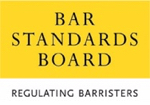Matthew White - Real Estate
Call: 1997
Inn: Gray’s Inn
- Download V-Card
- Print profile
- Home
- >
- Barristers
- >
- Matthew White
- >
- Real Estate

The mainstay of Matthew’s practice is personal injury litigation, but he thinks of himself as a “common lawyer” and enjoys cases dealing with other areas of law. In relation to Real Estate he has developed two particular areas of specialism:
Highways
Matthew successfully defended Young v Merthyr Tydfil CBC [2009] PIQR P23: a more modern restatement of the principle in Gautret v Egerton (1866-67) LR 2 CP 371 and McGeown v Northern Ireland Housing Executive [1995]1 AC 233 that, in relation to nonfeasance (i.e. doing nothing, as against misfeasance: positively creating a danger), no duty of care is owed to persons on a highway that is not a highway maintainable at public expense because presence on the highway is as of right rather than as a visitor. He has run the McGeown defence successfully a number of times subsequently.
More recently he was successful for the claimant in Barlow v Wigan MBC [2021] QB 229 in which the Court of Appeal suggested that the McGeown defence is only available if a person is only lawfully on a defendant’s land because of the existence of a public right of way.
Matthew has a particular interest in cases involving questions of whether a way is a highway, whether a highway is a highway maintainable at public expense, and the legal implications of those decisions, and is ‘go to’ counsel for a number of highway/ local authorities on that issue.
The issue of whether a way is a highway, and for what kind of traffic, has implications not only in relation to duty of care, but also in relation to whether the public are entitled to use and/or seek to clear or improve a way, and is therefore of particular interest to landowners and interest groups seeking to increase available highways.
Matthew regularly lectures on highway law issues, over the years having been invited to lecture amongst others the Chartered Institute of Highways and Transport and the Institute of Public Rights of Way. His various pieces on “Ways, Highways and Highways Maintainable at Public Expense” on the Chambers website continue to drive traffic despite being nearly a decade old.
Japanese Knotweed and other invasive species
Matthew has a particular interest in defending civil claims relating to the spread of invasive species, particularly Japanese knotweed. The withdrawal of the 2012 RICS guidance on Japanese knotweed and its replacement with the (currently draft) 2022 guidance will impact on the defending of such claims, and Matthew advises and litigates, generally on behalf of local authority defendants.
Matthew was successful in the Supreme Court decision on Japanese knotweed in the case of Davies v Bridgend County Borough Council [2023] UKSC 16 in which he represented the defendant. You can read the full case summary here.
Mediation
Matthew qualified as a mediator in 2014, primarily for a better insight when representing parties in mediation.
If acting as a mediator, Matthew will draw on his wealth of legal experience to assist the parties to reach an acceptable outcome without the need to go to trial / inquiry, avoiding the stress, uncertainty and escalating costs that can be involved in litigation.
Matthew brings a calm, assured and pragmatic approach to a mediation allowing parties to remain in control of the dispute and reach a settlement which is acceptable and cost effective to all.
Resources
Qualifications & awards:
- MA (Oxon)
Professional memberships:
- Personal Injury Bar Association

Matthew White is regulated by the Bar Standards Board (BSB) and holds a current practising certificate. If you are not satisfied with the service provided, please read here.
- See privacy notice
- Back to top
- Print page
